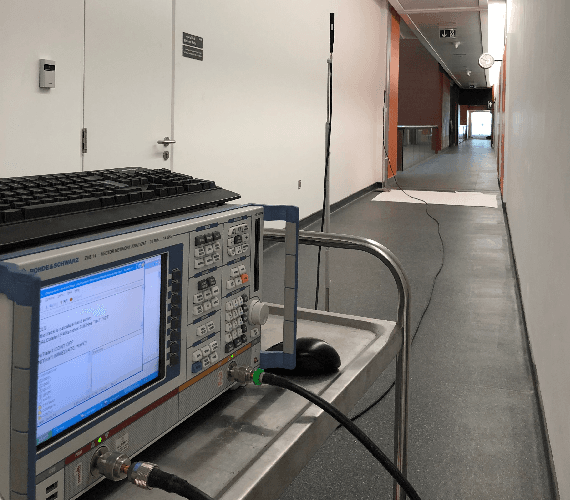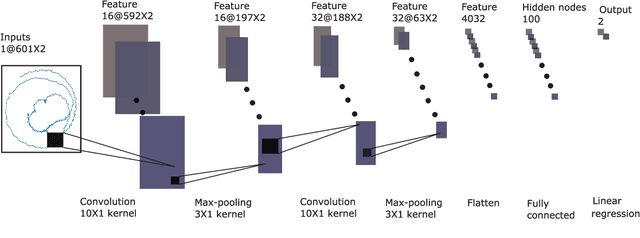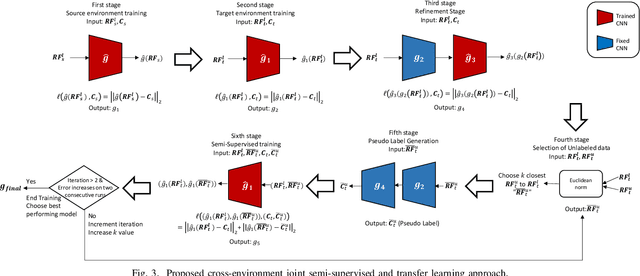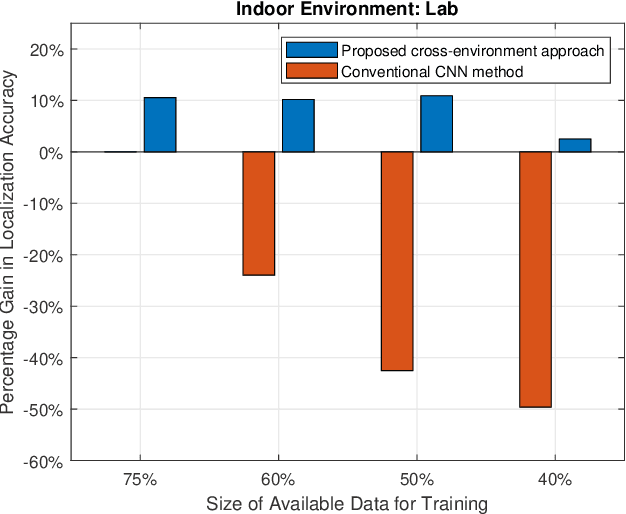Indoor Localization Under Limited Measurements: A Cross-Environment Joint Semi-Supervised and Transfer Learning Approach
Paper and Code
Aug 04, 2021



The development of highly accurate deep learning methods for indoor localization is often hindered by the unavailability of sufficient data measurements in the desired environment to perform model training. To overcome the challenge of collecting costly measurements, this paper proposes a cross-environment approach that compensates for insufficient labelled measurements via a joint semi-supervised and transfer learning technique to transfer, in an appropriate manner, the model obtained from a rich-data environment to the desired environment for which data is limited. This is achieved via a sequence of operations that exploit the similarity across environments to enhance unlabelled data model training of the desired environment. Numerical experiments demonstrate that the proposed cross-environment approach outperforms the conventional method, convolutional neural network (CNN), with a significant increase in localization accuracy, up to 43%. Moreover, with only 40% data measurements, the proposed cross-environment approach compensates for data inadequacy and replicates the localization accuracy of the conventional method, CNN, which uses 75% data measurements.
 Add to Chrome
Add to Chrome Add to Firefox
Add to Firefox Add to Edge
Add to Edge